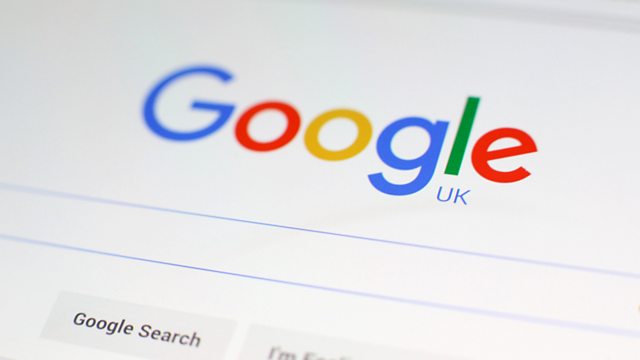The words 'clever' and 'death' crop up less often than 'Google' in conversation. And the US tech giant’s algorithm may well shape our access to knowledge for generations to come.
The words 'clever' and 'death' crop up less often than 'Google' in conversation. That’s according to researchers at the University of Lancaster in the UK. It took just two decades for Google to reach this cultural ubiquity. Larry Page and Sergey Brin – Google’s founders – were not, initially, interested in designing a better way to search. Their Stanford University project had a more academic motivation. Tim Harford tells the extraordinary story of a technology which might shape our access to knowledge for generations to come.
Producer: Ben Crighton
Editors: Richard Knight and Richard Vadon
(Image: Google logo and search box on a screen. Credit: Yui Mok/PA Wire)
Last on
Sources and related links
The Search: How Google and Its Rivals Rewrote the Rules of Business and Transformed Our Culture, John Battelle, Nicholas Brealey Publishing, 2006
Β (PDF) July 2011, McKinsey
Statista:
Techdirt:
³§³Ω²Ή³ΩΎ±²υ³Ω²Ή:Μύ
SEO 2.0:
Harvard Business Review:
Broadcasts
- Sat 11 Feb 2017 19:50GMTΒι¶ΉΤΌΕΔ World Service except Americas and the Caribbean, East and Southern Africa, News Internet & West and Central Africa
- Mon 13 Feb 2017 04:50GMTΒι¶ΉΤΌΕΔ World Service Australasia
- Tue 14 Feb 2017 23:50GMTΒι¶ΉΤΌΕΔ World Service Americas and the Caribbean
Podcast
-
![]()
50 Things That Made the Modern Economy
The stories of inventions, ideas and innovations which helped create the economic world


